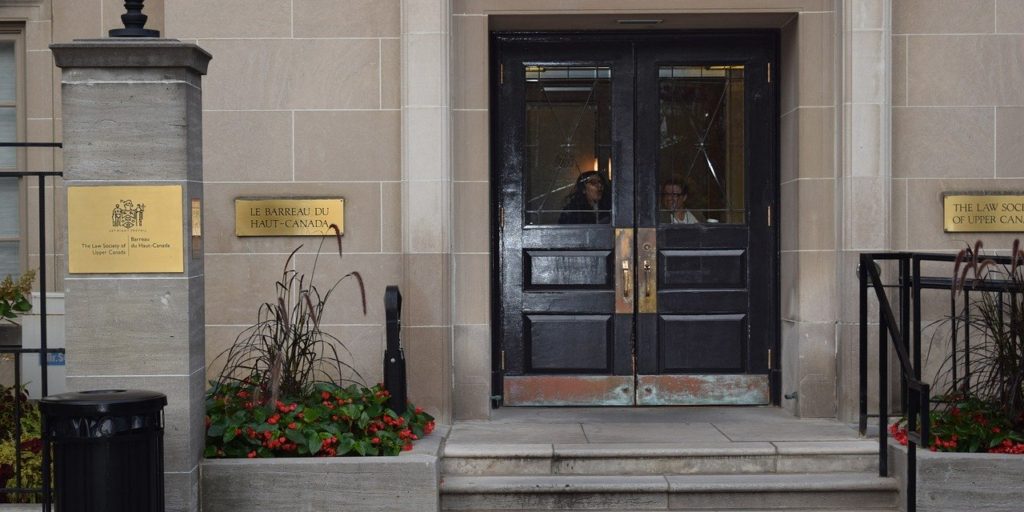- TLA expects better times in the coming year - April 28, 2021
- Justice Act amendments come up short on judiciary selection - March 16, 2021
- ‘It’s not a pirouette’ but our justice system pivoted in a new direction - February 19, 2021
When a motion to reduce 2021 licensing fees for lawyers and paralegals is heard at the Oct. 22 Convocation of the Law Society of Ontario (LSO), I hope benchers will vote it down. An across-the-board 25 per cent cut will not be enough to help those lawyers experiencing a dramatic reduction in income due to COVID-19, but it will certainly cripple the operations of the LSO.
The motion states “the pandemic has had a devastating financial impact upon the revenues of virtually all members in private practice … it is of critical importance to the access of justice and the public interest of all Ontarians that members of the law society are able to remain financially viable through this pandemic.”
As the president of the Toronto Lawyers Association (TLA) I understand the destructive impact that pandemic has had on our members, but using a blunt instrument such as a large across the board fee cut fails to deliver the kind of focused relief needed in these difficult times.
40% of lawyers are public sector
Keep in mind that approximately 40 per cent of licensed practitioners in Ontario are in the public sector, so the pandemic has not affected their income. In addition, a significant number of private-sector lawyers are faring better than initially expected. That is shown by a recent Globe & Mail story, which notes that two of Canada’s largest law firms are reversing pandemic pay cuts for staff since they are maintaining healthy revenue streams.
A 25 per cent reduction in LSO fees will not keep financially strapped firms afloat. As former LSO Treasurer Malcolm Mercer points out in a Slaw column, the 2020 licensing fee for full fee lawyers is $2,066 and $1,006 for paralegals. A 25 per cent reduction would provide a $517 annual cost reduction for lawyers and a $252 annual cost reduction for paralegals.
As Mercer states: “It is fanciful to suggest that a cost savings of approximately $45/month per lawyer and $25/month per paralegal will save practices from failure, which is the stated justification for the proposed fee reduction.”
- Judicial system reaches for the cloud as it embraces technology
- Now is not the time to cut juries from civil trials: TLA president
- Changes brought about by lockdown may improve our judicial system
The TLA is supportive of a careful review of both the costs and the revenues of the LSO and we would welcome a discussion about what spending priorities should be advanced. But simply depriving the LSO of a quarter of its funding is not the way to achieve that, as it instead would force hasty decisions about what has to be stripped away.
I’ve met with the LSO treasurer Teresa Donnelly and articulated to her that the TLA is not supportive of across-the-board cuts, but instead favours a careful review of costs and revenue. The law community cannot afford to risk losing important programs and staff that the LSO needs to carry out its regulatory duties.
LSO is reviewing its structure
To its credit, the society is already looking at how to control costs while improving service through its Proportionate Regulation and Program Review task forces. According to a LSO fact sheet, in 2020 the fees for lawyers decreased by $135 while paralegals enjoyed a decrease of $109.
The LSO performs a critical role as a regulator for the profession in this province. Folded into that, lawyers have been given the benefit and obligation of being self-regulated. If we want to retain that right, we need to ensure it is being done properly. Slashing the LSO budget will significantly reduce its ability to do its important work, and that could impact the government’s decision to allow the law community to continue to be self-regulated.
It is also illogical to say that a cut in fees would somehow help the general public. Slashing the ability of the LSO to regulate the profession and assist the public in their interactions with lawyers can only hurt the people we serve.
As a result, the LSO needs to carefully consider how to support those members who are suffering financially during the pandemic, while ensuring that it continues to be fulfill its role as a regulator of the legal profession. This careful consideration may take more time, but it will be more beneficial to the profession in the end.

